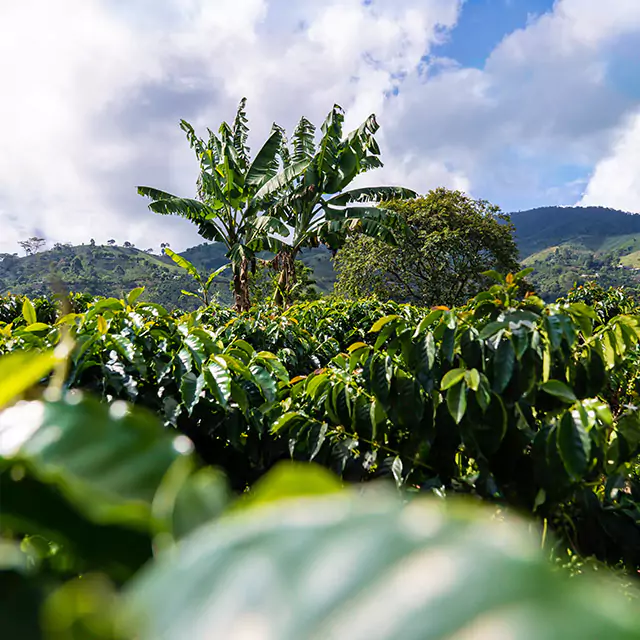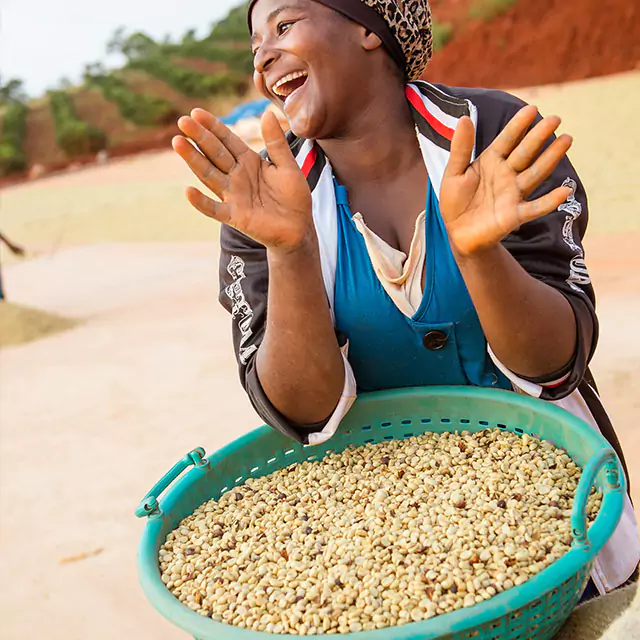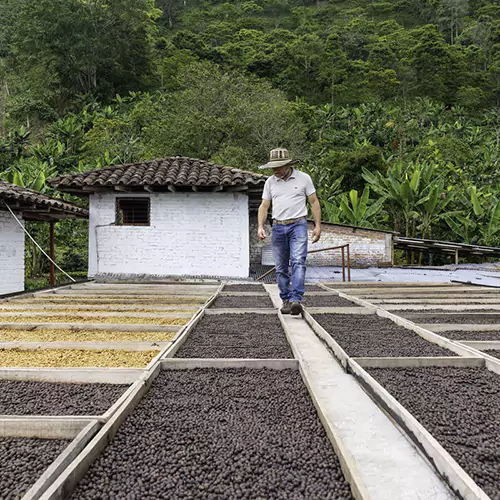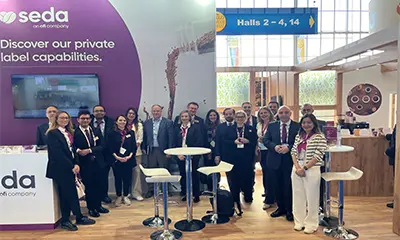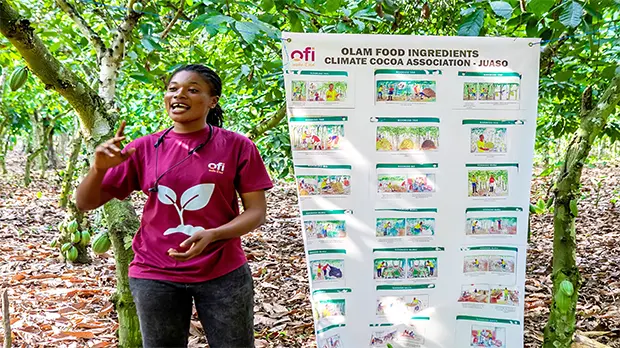By Janhavi Naidu, Human Rights & Inclusion Manager, ofi
Climate action relies not just on technology or policy - it centers on people and the deep connections they have with the land that sustains them. Within our agricultural communities, there is an overlooked force that can be unleashed to fight climate change: women.
The climate challenge for women
Women are the backbone of global agrifood systems - in some countries, they make up nearly half of the agricultural labor force. In Sub-Saharan Africa and South Asia, more women are employed in agriculture than men—66% and 71% respectively. Though vital, their role is often undervalued, and they remain largely excluded from the resources they need to be successful.
Climate change exacerbates this inequality. With limited land titles or assets, women struggle to secure credit to help them recover from weather-related damages. Without access to capital, training or technical assistance, they’re less-equipped to adopt climate-smart practices or increase crop yields that could help them mitigate future impacts. And as more extreme weather events affect communities across the globe, women are often left to pick up the pieces in their roles as unpaid carers.
In ofi’s supply chains, women play a pivotal role - as landowners, family workers, hired workers and extension agents and traders. Imagine the transformative potential if these women were fully empowered - how much stronger, more resilient, and more sustainable our food systems could be.
The case for making climate action more inclusive
The UN estimates that if all women smallholders had equal access to resources, their farm yields would rise by 20-30% per cent and carbon dioxide emissions could be reduced by 21 gigatons by 2050 through improved farm practices. That’s twice the annual emissions of China.
Women often perform specialised care-taking tasks on farms like soil and water management, seedling and nursery management, pest control, and post-harvest processing, making them critical to adoption of new climate-smart technologies and practices at scale. In our own programs, we’ve seen that women tend to embrace climate-smart agriculture practices at higher rates than men when provided with the right training.
In northern Vietnam for example, my colleague Yen and her team are running an organic cassia program, where 18% of the participants are women. With no formal agricultural training, the women have replaced chemical fertilizers with organic matter, incentivized by the higher price they can get for selling organic and the additional quality premium ofi offers.
We’ve also learnt that when able to, women are more likely to reinvest more of their earnings in their families and communities than their male counterparts, improving food security and reducing the risk of child labor. A Village Savings and Loan Association (VSLA) set up by our cocoa team in Cote D’Ivoire has enabled women to venture into vegetable cultivation and even set up a hair salon. These independent income streams help women finance their children’s education and reinvest into the collective savings pot to serve their community.
Our role on the path to empowerment
Unlocking the potential of women requires investment in education and training programs, ensuring they have access to credit and technology, and creating spaces for them to lead. Women must be brought into the decision-making processes at every level—from local farming communities to global policy discussions.
We do this either through setting up dedicated programs for women or building in inclusion initiatives to existing ones. In Brazil, where many women play ‘supporting roles’ in coffee production despite owning farms, we created Café Delas, a specialty coffee brand produced exclusively by women. When roasters buy Café Delas they get specialty coffee that’s 100% traceable and ofi reinvests three cents per pound from every sale into training and tools for these women to help them run and develop a successful coffee enterprise.
Some of my proudest moments at ofi have been hearing from women who since joining our programs have gained the confidence to engage in leadership roles. Women like coffee farmer Normalina who is taking part in the ‘Coffee for Communities’ program with roaster Tim Hortons in Indonesia. Over half the participants are women, born into a coffee culture in North Sumatra where they are rarely recognized as farmers. Equipping them with technical and land-management skills helps them become decision-makers and leaders on their farms.
I am moved by Normalina’s proud words: “The project has given me the confidence to take charge of my farm and contribute more to my community.”
ofi’s combined activities reached nearly 90,000 women across our global supply chains last year, delivering GAP training, inputs, credit, technical skills and income diversification resources. The wide view we take across the value chain means we know the interconnected benefits this can deliver - from safeguarding children, to increasing adoption of climate smart practices. Which is why we’ve set ourselves a dedicated target to scale our impact and support 250,000 women to improve their livelihoods by 2030, under ofi’s Choices for Change sustainability strategy.
To guide these efforts, we’ve developed a global toolkit to help our field teams improve women’s inclusion in their supply chains. Teams using the toolkit take a quick assessment to determine their position on an inclusion roadmap and select from a comprehensive compendium of activities – like training, access to infrastructure and inputs, and community development - to implement in their regions according to the local context.
This year’s International Women’s Day theme is ‘Accelerate Action’. Empowering more women in agriculture can help shift away from a narrow focus on productivity to a broader vision that includes sustainability, resilience, and social equity. This is the kind of leadership the world needs in the face of climate change.

